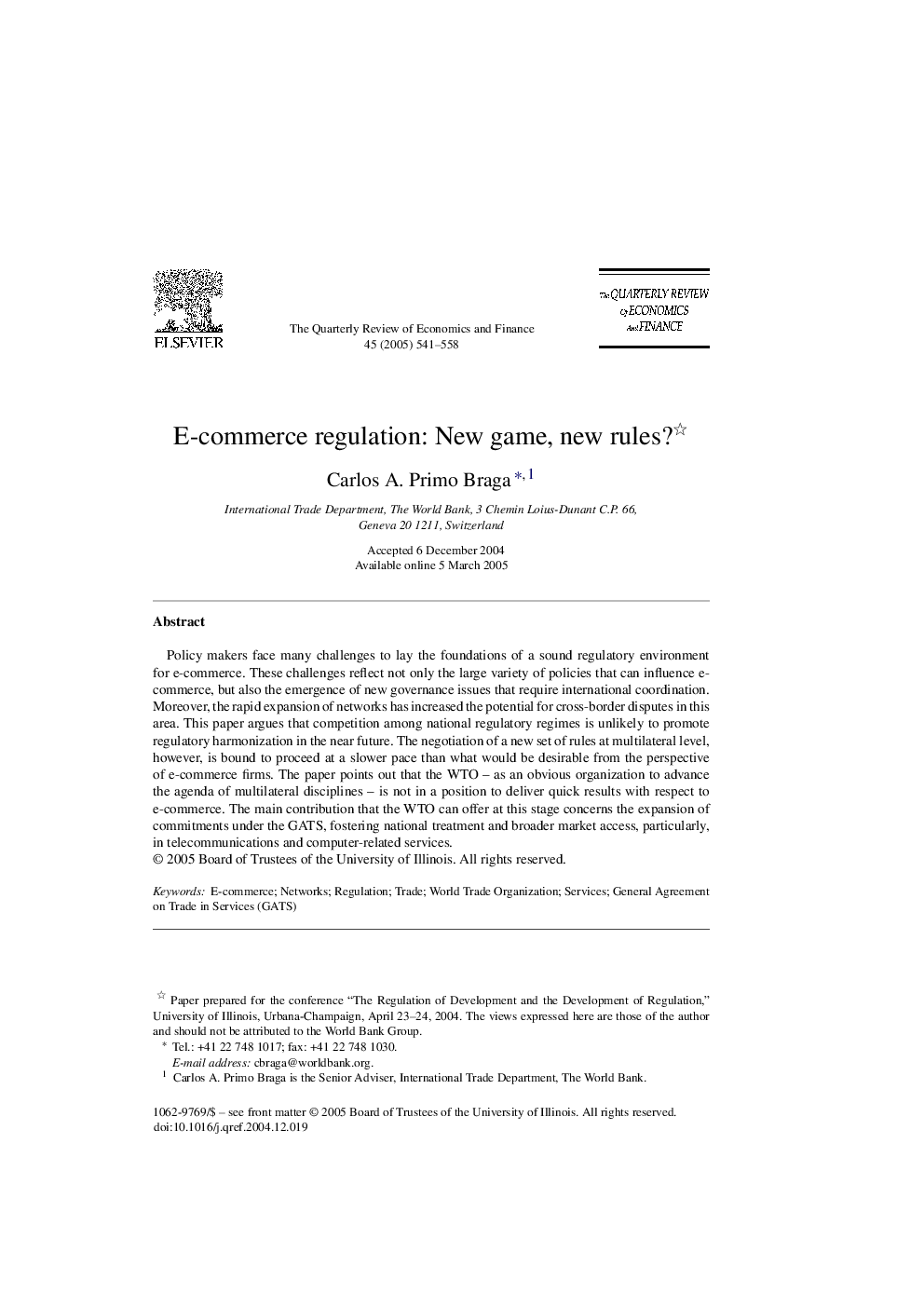| Article ID | Journal | Published Year | Pages | File Type |
|---|---|---|---|---|
| 9731496 | The Quarterly Review of Economics and Finance | 2005 | 18 Pages |
Abstract
Policy makers face many challenges to lay the foundations of a sound regulatory environment for e-commerce. These challenges reflect not only the large variety of policies that can influence e-commerce, but also the emergence of new governance issues that require international coordination. Moreover, the rapid expansion of networks has increased the potential for cross-border disputes in this area. This paper argues that competition among national regulatory regimes is unlikely to promote regulatory harmonization in the near future. The negotiation of a new set of rules at multilateral level, however, is bound to proceed at a slower pace than what would be desirable from the perspective of e-commerce firms. The paper points out that the WTO - as an obvious organization to advance the agenda of multilateral disciplines - is not in a position to deliver quick results with respect to e-commerce. The main contribution that the WTO can offer at this stage concerns the expansion of commitments under the GATS, fostering national treatment and broader market access, particularly, in telecommunications and computer-related services.
Related Topics
Social Sciences and Humanities
Economics, Econometrics and Finance
Economics and Econometrics
Authors
Carlos A. Primo Braga,
